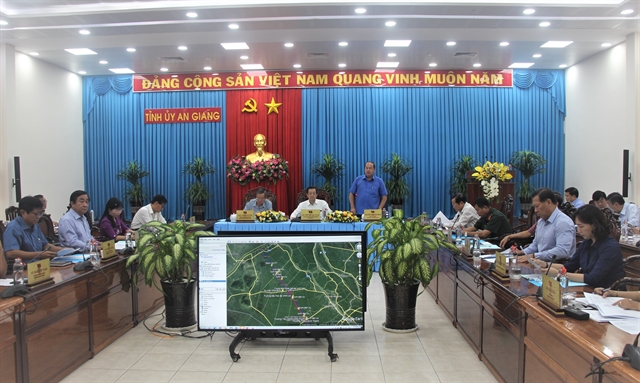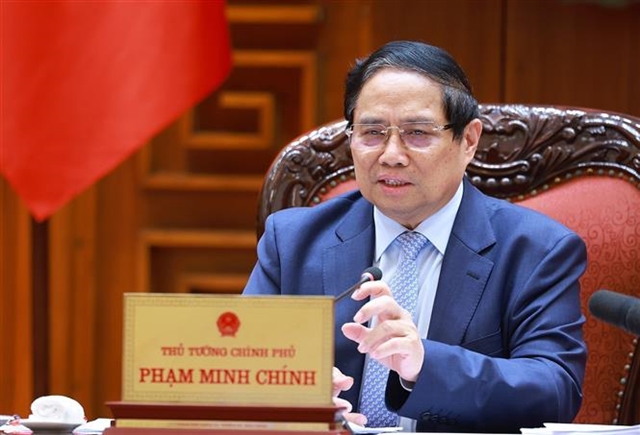 Society
Society

 |
| PM Phạm Minh Chính speaks at the event. VNA/VNS Photo |
HÀ NỘI — Prime Minister Phạm Minh Chính chaired a teleconference on Tuesday, connecting permanent Government members with ministries, agencies and localities to address bottlenecks stalling the Châu Đốc - Cần Thơ - Sóc Trăng expressway project in the Mekong Delta.
Spanning 188.2km, the four-lane expressway is set to cut through Cần Thơ city and the provinces of An Giang, Hậu Giang, and Sóc Trăng. With an estimated cost of VNĐ44.69 trillion (over US$1.7 billion), the project is divided into four sub-projects, each managed by the local People’s Committees. Construction began in June 2023 and aims for basic completion in 2026 and full operation in 2027.
The expressway, running along a horizontal axis across the Mekong Delta, promises to slash travel time between An Giang and HCM City. Moreover, it will connect to Trần Đề port of Sóc Trăng province, a key gateway and economic driver for the region, facilitating the transit of exports and imports not just for Việt Nam but also for Cambodia and the broader Mekong sub-region.
Progress varies across the project, with land clearance mostly done and construction hitting 15–46 per cent completion in different segments. However, delays plague the Cần Thơ and Sóc Trăng sections, hampered by a shortage of sand for roadbeds, seasonal flooding, and the region’s soft soil.
In his closing remarks, PM Chính framed the expressway as part of Việt Nam’s goal to complete 1,200km of expressways this year, en route to a national target of 3,000km by the Government term’s end.
He noted that since taking office, the Government has prioritised securing investments for transport infrastructure to ease transport-related bottlenecks in the Mekong Delta, helping foster socio-economic development, ensure security - defence, create new development spaces, facilitate production, business and job creation, and guarantee social welfare in the region.
He requested local authorities to embrace their responsibilities and rally the entire political system and armed forces for better coordination and effectiveness. Contractors were urged to adopt more proactive and flexible approaches to accelerate progress to meet the June 2026 deadline.
The Government leader called for a spirited emulation movement, tighter inspections, and prompt recognition of successes, as well as strict action against delays tied to corruption or misconduct. Issues beyond the power of local authorities must be forwarded to the Government for consideration. — VNS




